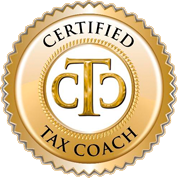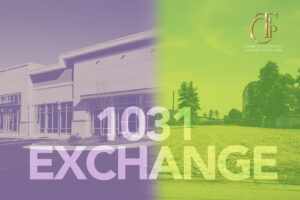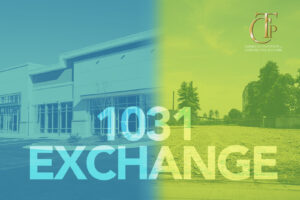Do you feel that you pay too much in tax? You’re not alone. The General Accounting Office estimates that Americans over-pay their taxes by almost a billion (yes, that’s billion) dollars each year! That’s why tax planning is gaining in popularity.
Why do so many pay more than they have to? Some obvious reasons are mistakes or oversights on their tax returns. But another problem is that the accounting industry is not trained how to LOOK FOR NEW ways to reduce your taxes that you have not yet taken advantage of.
Not all tax planning is the same! Warren Buffet and Fortune 500 companies come to mind when you think of serious tax planning. But now, even your DIY tax software says it offers tax planning! It CAN’T be that simple! (You’re right, it’s not!)*
Real tax planning is very hands-on, customized, and proactive. It takes a trained expert, with advanced education, specialization, and licensure to ensure the highest ethical standards and to protect you legally before the IRS!
It’s a BIG challenge for consumers to assess the qualifications and quality of your accounting and tax planning professionals. So how can you feel confident you’ll find a reliable person who is ethical and well educated to keep some of that billion in your wallet? I’ve put together the following criteria and questions to help you find the best advisor so you can stop giving Uncle Sam too much!
1. Do you have the credentials necessary to do tax planning?
With the alphabet soup of credentials out there, it can be confusing to translate all those letters on your accountant’s business card.
The lowest level of credentials is a licensed tax preparer. For example, in California, this means a California Tax Education Council CTEC registered tax preparer (CRTP). CTEC certified preparers take a course in tax preparation, and go through an application process with the state. Anyone who prepares or assists in preparing federal tax returns for compensation must have a valid Preparer Tax Identification Number (PTIN) before preparing returns. Again, these are the bare minimum.
If you want a tax planning expert, you should look for higher levels of education and licensure. Consider using one of these trained professionals: an Enrolled Agent (EA) is licensed to represent taxpayers before the IRS and must take educational courses; a Certified Public Accountant (CPA) must have a bachelor’s degree in accounting, have experience working for another CPA and pass a rigorous two-day exam. Tax attorneys (JD) can work as generalists or specialize in specific areas of tax law, such as corporate tax or estate planning. They take the LSAT exam and attend law school to earn a juris doctor (JD) degree. Earning a JD generally takes three years. To practice law, tax attorneys must pass the bar exam after finishing school.
A Certified Tax Coach (CTC) is unique among these EA, CPA and Tax Attorneys, having attained not only one or more of these professional licenses, but additional advanced specialty training specifically in proactive tax planning –– something NOT traditionally taught at universities.
To find the right professional for you, determine what level of responsibility the preparer assumes for your tax returns. Professionals who put their credentials on the line provide the highest level of responsibility and will usually work as accurately as possible to protect their license. Professionals may also offer some sort of warranty for their work, which will provide reimbursement of fees paid, or other insurance to ensure you are protected from liabilities resulting from errors made. Certified Tax Coaches, Planners and Strategists all meet these highest levels of standards.
2. Have you received specific training in tax planning?
As was mentioned before, tax planning is not a part of standard accounting education. While the principles of tax filing and law are taught, the process for evaluating an individual’s business or financial situation to look for all the available opportunities to be found within the tax code is not a strategy taught at schools. The American Institute of Certified Tax Planners is the only entity granting certification to licensed professionals in this niche specialty.
3. Are your recommendations reactive or proactive?
Traditional accountant and tax services simply report the fiscal activity that occurred during the year. This is accepting things as they are, and reacting to the status quo.
A proactive tax plan is planned out in advance, collaborating with an innovative and thorough tax planner. Certified Tax Coaches know the right questions to ask, and what to look for in current and previous tax years. By taking the time to know your business and family circumstances, they can advise you how make changes in your business or financial situation that will help you minimize your tax burden in ways you have not taken advantage of before.
4. How have you helped clients like me reduce their taxes?
Ideally, look for an expert who has experience related to your business. How much experience does your advisor have delivering the kind of results you are looking for, and what experience do they have with the specific issues affecting you? Do their current clients have business experience and average income similar to yours?
What kinds of results have they produced from their tax plans? An experienced tax planner should be able to discuss their competencies and successes. However, do not expect them to explain all the details. Every tax planning situation unique, and that professional expertise is what you hire them for.
Tax planners can often assess your potential for tax savings based on a quick review of previous tax returns. Ask about a complimentary or low cost review.
5. Are you relying solely on tax planning software?
Consumers need to know that tax planning software is becoming commonplace. This allows even untrained tax preparers to put together simple plans without really knowing tax case law. Many providers can run your tax return through software and catch easily missed ideas, but again they may be status quo fixes. A simple plan is one thing. Do you want to rely on an untrained tax preparer to advise you on making major changes to your business, or trying new tactics without the expert knowledge to back you before the IRS? It is wise to be cautious in this rapidly changing era of AI:
*While it is possible to follow a “boilerplate” tax plan, it would be difficult at best to defend your tax positions if and when the IRS audits. And unfortunately, “the software told me I could do it,” is not an allowable defense[1]. At this point, there is just no computer replacement for human judgment.
A tax plan is well worth the investment of your time and money. The most sophisticated tax planning is both LEGAL and ETHICAL and can reap the kind of enormous savings that you hear about from Fortune 500 companies and our most wealthy billionaires. But you want to be certain you have engaged a true expert to formulate and execute your plan.
The strategies that tax planning procures are legally available to benefit all Americans who qualify for them, and it’s foolish to not take advantage of every legal loophole our laws allow. You and your business deserve to find and take advantage of every one possible.
Taking time now to find a reliable competent Certified Tax Coach, Planner or Strategist can reap enormous savings down the road! Visit the American Institute of Certified Tax Planners to find an expert near you.
[1] Bulakites, Barry Leonard v. Commissioner May 11, 2017.





